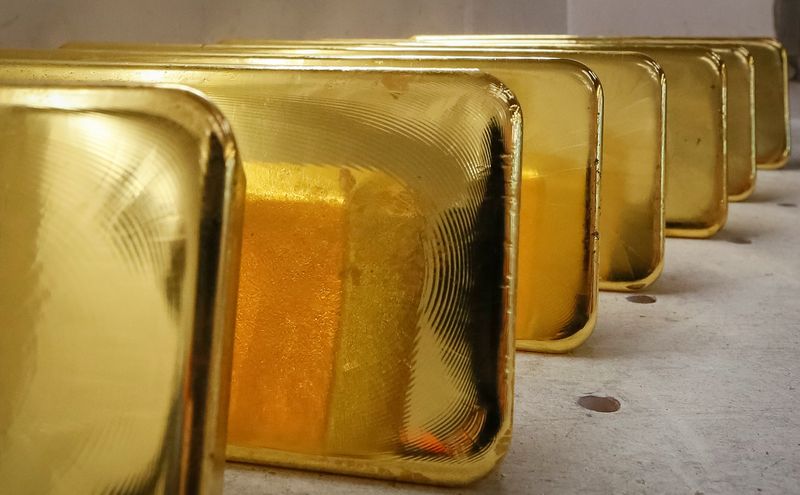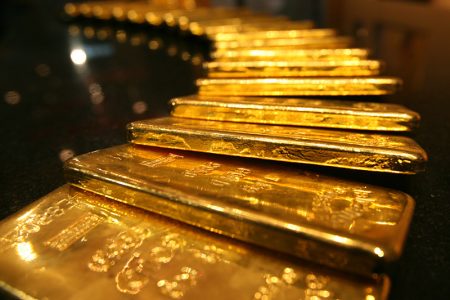Investing.com– Gold prices steadied in Asian trade on Wednesday after hitting record highs this week as the prospect of lower U.S. interest rates battered the dollar and spurred more flows into the yellow metal.
Broader metal prices also advanced, benefiting from a softer dollar and falling Treasury yields, although their pace of gains slowed amid a broader risk-off move in markets.
rose 0.1% to $2,515.44 an ounce, while expiring in December rose 0.1% to $2,553.35 an ounce by 00:51 ET (04:51 GMT). Spot prices hit a record high of $2,531.72 an ounce on Tuesday.
Gold buoyed by rate cut bets; Powell, Fed minutes in focus
Gold and broader metal prices were supported chiefly by persistent bets that the Federal Reserve will begin cutting interest rates in September.
Traders were split over a 25 or 50 basis point reduction, showed.
Focus this week is squarely on an address by at the Jackson Hole Symposium on Friday, where he is expected to further the Fed’s dovish tilt. But analysts do not expect Powell to explicitly forecast any potential rate cuts.
The of the Fed’s late-July meeting are also due later in the day, after the central bank struck a dovish chord during the meeting.
The prospect of lower rates bodes well for gold, given that it reduces the opportunity cost of investing in non-yielding assets.
This notion, coupled with recent weakness in the dollar, was a key driver of gains in metal markets. But a bulk of this buying was directed towards gold, while other precious metals logged marginal gains.
fell 0.1% to $956.25 an ounce, while rose 0.1% to $29.538 an ounce.
Copper steadies as markets weigh improved China demand
Among industrial metals, copper prices rose slightly on Wednesday, extending a rebound from recent lows on signs of improving demand in top importer China.
Benchmark on the London Metal Exchange rose 0.4% to $9,222.50 a ton, while one-month rose 0.2% to $2,554.10 a pound.
Data earlier this week showed China’s copper exports fell in July as domestic buyers took advantage of recent weakness in copper prices.
The reading showed some improvement in Chinese copper demand, after copper imports to the country declined for two consecutive months.
But signs of persistent economic weakness in China still limited overall gains in copper, given that the world’s biggest copper importer has been struggling with a post-COVID recovery for nearly two years.
Read the full article here











